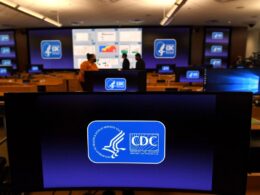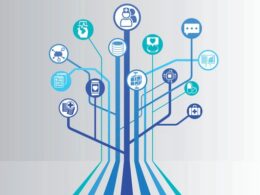StatNews
Eric Reinhart
Feb. 24, 2023
EXECUTIVE SUMMARY
The current state of public health in the United States is in dire need of reform, with the medical profession’s dominance and narrow focus on biomedical expertise being one of the primary issues.
- Effective public health policy requires input from a range of fields, including social anthropology, political economy, epidemiology, communication, law, and other non-medical disciplines.
- Public health systems must prioritize protections for the most marginalized individuals and involve them in the process of designing and implementing care systems that empower their communities.
- To rebuild public health in the US, the power structure that governs it must be inverted, with clinical and scientific experts acknowledging the limits of their knowledge and embracing supportive roles in a redesigned public health system …
- … that is guided by and accountable to the communities whose lives are most affected by public health policy decisions.
DEEP DIVE

A classic warning in public health goes like this: “A society that spends so much on health care that it cannot or will not spend adequately on other health enhancing activities may actually be reducing the health of its population.”
No nation is as guilty of this practice as the United States, with its extremely high health expenditures alongside abysmal population-level health outcomes.
But the medical field’s corrosion of public health doesn’t stop at budgets and policies.
Through its stranglehold on resources and institutional power, the U.S. medical profession has also come to distort the very definition of public health and what is now widely believed to constitute relevant knowledge.
Through its stranglehold on resources and institutional power, the U.S. medical profession has also come to distort the very definition of public health and what is now widely believed to constitute relevant knowledge.
As I noted in a related essay in The Nation, lessons from labor history, social anthropology, political economy, epidemiology, communication, law, and various other nonmedical fields represent the bulk of the expertise that is most essential to formulating effective public health policy.
Medical interventions constitute just 10% to 20% of modifiable factors that affect health, yet narrow biomedical expertise has been consistently prioritized in the selection of U.S. public health leaders from local to state and federal levels.
…lessons from labor history, social anthropology, political economy, epidemiology, communication, law, and various other nonmedical fields represent the bulk of the expertise that is most essential to formulating effective public health policy.
Medical interventions constitute just 10% to 20% of modifiable factors that affect health, yet narrow biomedical expertise has been consistently prioritized in the selection of U.S. public health leaders from local to state and federal levels.

The marginalization of non-biomedical knowledge within public health administration and the corresponding elevation of physicians to power has had catastrophic consequences for population-level health.
While the clinical frameworks that characterize medical training are appropriate for the one-to-one encounters of patient care, misapplying them to the population-level problems of public health leads to a failure to effectively anticipate and address the social conditions upon which disease and disability feed.
This, in turn, fuels a top heavy, reactive national health policy that prioritizes profitable medical treatment rather than cost- and life-saving prevention via community-based social services.
Declining life expectancy in the U.S. — now at its lowest in nearly two decades — reflects the consequences of this policy choice.
While the clinical frameworks that characterize medical training are appropriate for the one-to-one encounters of patient care, misapplying them to the population-level problems of public health leads to a failure to effectively anticipate and address the social conditions upon which disease and disability feed.
Rebuilding public health in the U.S. will require reclaiming it from its biomedical perversions.
In place of physicians who are world-leading experts in narrow doctor-think, the country needs public health systems led by collectives with training across the range of social and biological sciences that effective public health policymaking must synthesize.
America doesn’t need a world-leading virologist in charge of responding to viral threats, for example.
It needs need people prepared to work collaboratively to integrate virological insights — supplied by advisers who are world-leading virologists — with the on-the-ground realities of labor, political-economic, psychological, and cultural dynamics in order to produce effective policy.
In place of physicians who are world-leading experts in narrow doctor-think, the country needs public health systems led by collectives with training across the range of social and biological sciences that effective public health policymaking must synthesize.
These kinds of collaborations are essential not only for formulating good public health strategies, but also for the equally important task of communicating to politicians and members of the general public how and why public health matters and what building it requires.
As both an ethical and a practical matter, public health systems necessarily prioritize protections for those who are put at greatest risk by the current state of affairs.
As shown by the history of global health apartheid during HIV, tuberculosis, and Covid-19 epidemics, with amplification linked to unmitigated spread among neglected groups, failing to safeguard the health of those put at greatest risk by ongoing inequalities ultimately puts everyone at risk.

It’s for this reason that the most effective public health systems are designed and implemented from the bottom up.
They see world “from below” — that is, from the most marginalized positions in a society where the obstructions to health are most apparent and oppressive.
Enabling this kind of approach requires listening to, valuing, and directly involving individuals with lived experience of how and who the existing systems are failing:
people who are unhoused, elderly, immunocompromised, migrant agricultural workers, racialized, those identifying as LGTBQ+, those living with histories of incarceration, and otherwise vulnerable groups.
They see world “from below” — that is, from the most marginalized positions in a society where the obstructions to health are most apparent and oppressive.
To put marginalized on-the-ground knowledge to work, to deepen and reward it, the country must build community-based, community-led care systems that empower individuals — and by extension, their families and neighborhoods — via employment with living wages to provide supportive care within their own communities.
These kinds of accompaniment-based systems, such as the national community health and justice worker corps I recently proposed in the New England Journal of Medicine, are essential …
… for providing the relational infrastructure needed to build trust, shared safety, and health by directly meeting people’s everyday needs.
They are also indispensable for generating the on-the-ground knowledge upon which functional public health systems depend to be responsive to a population’s ever-shifting circumstances and to earn ongoing popular support.
Investments in community-led care also have enormous potential to reduce out-of-control U.S. health care spending.
This could then free up additional resources to use for further supporting communities rather than continuing to see trillions swallowed by the cost of simply treating the medical consequences of public abandonment.

In sum, what U.S. public health needs — even if those who benefit from the status quo refuse to see it — is an inversion of the power structure that governs it.
Rather than doctors perpetually running the show, clinical and scientific experts need to acknowledge the limits of their knowledge and embrace supportive roles in a redesigned public health system …
… that is guided by and accountable to the communities whose lives are most affected by public health policy decisions.
This doesn’t mean that physicians and scientific experts don’t have an important role to play, don’t have important knowledge to contribute, nor that they should disengage from public health.
In fact, they need to do precisely the opposite: deepen their commitment to public health by organizing for it.
Physicians should embrace that it is through epistemic humility, solidarity, and accompaniment alongside dispossessed communities, not the individualistic cult of leadership that so often permeates elitist education and institutions, that they have the potential to most effectively contribute to building public health.
Physicians should embrace that it is through epistemic humility, solidarity, and accompaniment alongside dispossessed communities, not the individualistic cult of leadership that so often permeates elitist education and institutions, that they have the potential to most effectively contribute to building public health.
When the current U.S. health system and the wealthy interests it serves are so deeply entrenched, can any of these much-needed shifts come to pass?
Change will no doubt require mass political pressure from many sides at once, and reliance on heroic acts or self-sacrificing individuals will not be adequate to take the country where it needs to go.
But given the top-down order of U.S. public health as it presently exists, its current leaders possess unique potential to kick-start a much-needed health systems revolution right now.
Anthony Fauci, who has recently retired from public office, together with Ashish Jha and Rochelle Walensky — all three are physicians — have the ear of the president, Congress, and the public as perhaps no other public health officials in U.S. history ever have.
They are also widely recognized to have made major missteps. Some of these were due to structurally imposed partisan demands; others were due to their own unforced errors in judgment.
As a result, each has faced harsh public criticism and been repeatedly put on the defensive by their public health colleagues.
From this position, they are now in strong places to publicly speak out in a coordinated fashion on the errors they have made, their underlying causes, and the epistemic and systems-level deficiencies they reflect.
Anthony Fauci, who has recently retired from public office, together with Ashish Jha and Rochelle Walensky — all three are physicians — have the ear of the president, Congress, and the public as perhaps no other public health officials in U.S. history ever have.
From this position, they are now in strong places to publicly speak out in a coordinated fashion on the errors they have made, their underlying causes, and the epistemic and systems-level deficiencies they reflect.
As one small beginning step, they could use their critical reflections as an opportunity to call for the president and Congress to address the public health leadership appointment systems that have generated the partisan straitjackets by which public health officials and federal agencies, such as the Centers for Disease Control and Prevention, have been severely restricted under both the Trump and Biden administrations.
In The Nation essay, I alluded to one possible strategy for addressing the problems created by presidential appointment power and associated partisan agendas, …
… suggesting that authority could be delegated to the National Academies of Sciences, Engineering, and Medicine (NASEM) to nominate federal public health leaders for congressional approval.
This body of scientific authorities spanning many fields was created in 1863 during a time of intense national division — a period that shares some commonalities with the present.
Under President Abraham Lincoln, the founding congressional charter for the National Academy of Sciences gave it one responsibility:
“the Academy shall, whenever called upon by any department of the Government, investigate, examine, experiment, and report upon any subject of science or art.”
It soon received its first request for advice on the uniformity of weights, measures, and coins. Eight months later, it issued its policy recommendations.
Many subsequent requests for advice have been received and recommendations returned, but the NASEM’s audience slowly shifted toward fellow scientists, as increasingly partisan officials lost interest in asking for advice that might not line up with their ideological priorities.
Although NASEM’s reports continue to this day, most lawmakers appear altogether unaware of the existence of the academies and their consensus policy recommendations.
the NASEM’s audience slowly shifted toward fellow scientists, as increasingly partisan officials lost interest in asking for advice that might not line up with their ideological priorities.
With scientific illiteracy widespread across the country, including among those elected to political office, …
… for the NASEM to be useful it needs to be given more power to influence policy and to hold lawmakers publicly accountable for disregarding scientific realities.
Delegating to the NASEM the authority to nominate the leadership of federal scientific agencies would be one way to do this.
This would enable key agencies like the CDC, the National Institutes of Health, the Environmental Protection Agency, the Occupational Safety and Health Administration, and others to operate more independently of partisan interference.
This could, in turn, allow them to begin to embark upon systematic reorganization rather than being constrained by electoral cycles and associated horizons.
Empowering experts to appoint experts is admittedly a non-ideal solution — because it is undemocratic — and is vulnerable to many pitfalls, including eventual partisan corruption of the NASEM itself.
But despite its significant limitations, it may offer a start for pulling U.S. public health out of the death spiral in which it is now caught.
This could then enable Americans to collectively begin implementing more fundamental changes to their public health agencies and systems.
I hope others will propose additional strategies for recovering public health from its current abyss but, whatever is done, it is vital to acknowledge that public health agencies do work that is, by their very nature, inescapably political.
In order for the necessarily political work of public health to be effective, though, it cannot be subject to party loyalties nor to continued control by medical doctors.
In order for the necessarily political work of public health to be effective, though, it cannot be subject to party loyalties nor to continued control by medical doctors.
As a nation, Americans must reclaim public health as a collective political project by and for the people — and demand the supportive investments in communities that it requires.
While scientific expertise in its supporting proper role is indispensable to our shared safety and health, it can no longer be used as an alibi for refusals to build the public systems for care upon which the country’s future depends.
Eric Reinhart is a political anthropologist of public health and law, a psychoanalyst, and a physician at Northwestern University.
Originally published at https://www.statnews.com on February 24, 2023.
Names mentioned (selected)
- Anthony Fauci,
- Ashish Jha and
- Rochelle Walensky












